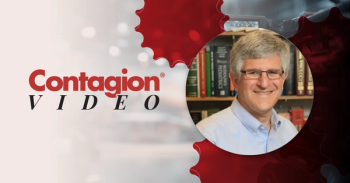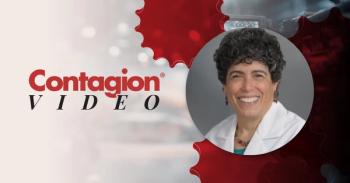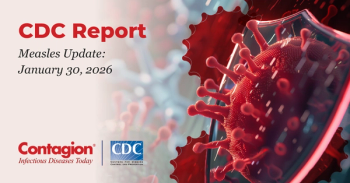
Public Health Responses to an Outbreak of Measles
Segment Description: A comprehensive breakdown of how public health institutions report on and respond to potential measles outbreaks in the United States.
Glenn Fennelly, MD, MPH: In terms of the local response to the outbreak in 2018 in New Jersey, could you explain the protocol for investigating the outbreak? What’s the public health response? How do we interrupt?
Christina Tan, MD, MPH: To your point, even though we’re seeing all these outbreaks throughout the country, we’re also seeing it in New Jersey as well. That demonstrates that basically these types of measles outbreaks show no borders in general. As you had mentioned, Glenn, we actually had a New Jersey outbreak that impacted about 33 New Jersey residents here in our state in the last several months. These were all travel-associated cases, and the importation of an individual who had become infected while visiting a country outside the United States that was experiencing an outbreak.
And as soon as we hear about a report of any sort of travel-associated measles case—measles are immediately reportable to public health agencies in New Jersey—our public health departments get into action. We have local health departments and the state Health Department stands ready when we hear about these particular reports. And when we get these reports we treat them very seriously, because measles is very highly infectious, as you know as a practicing physician. It’s important to try to take steps to mitigate that spread.
So what we do in public health is once we get a report of a suspected measles cases, we’ll work closely with the local health department—as well as with the treating physicians, the treating medical facilities—to confirm the diagnosis first of all, because not all febrile rash illnesses are measles.
Glenn Fennelly, MD, MPH: Yes.
Christina Tan, MD, MPH: We get an epidemiology history. We look at travel history. Because the vast majority of all the measles cases that we see here in the United States, and in New Jersey, are all travel associated. And then we’ll see the secondary cases related to the importation of measles into our state.
And then, after we get a confirmation that we are indeed dealing with measles, the local health department begins the process of collecting information on people who have had contact with that report of measles, so that you can get an idea of who might need to have a public health intervention. And those types of disease measures include making sure you check on the immunization status. We know that the 2-dose vaccination with MMR [measles, mumps, and rubella] is extremely effective in preventing disease.
Sometimes there will be recommendations for immunoglobulin treatment. It all depends on what the circumstances are with these particular close contacts. And in the situation of our Ocean County measles outbreak that we just experienced several weeks ago, it lasted over 2 months, and this was a really terrific effort that involved the New Jersey Department of Health and the Ocean County Health Department. It involved medical providers, the federally qualified health center down in Ocean County, to mount an impressive response to try to figure out who all those contacts were, in addition to working with the federally qualified health center to run vaccination clinics to identify and to vaccinate those who might be potentially susceptible to getting measles.
Glenn Fennelly, MD, MPH: Right, right. I think 1 challenge with measles is that it’s highly contagious. If a child is unimmunized or vulnerable, there’s a 90% likelihood they’re going to get the infection if exposed. And also, if there’s a space a case has been in for up to 2 hours, the virus can still be contagious through aerosol exposure. So this represents a major challenge, and there could be even many unknown exposures. So that compounds the problem.
Newsletter
Stay ahead of emerging infectious disease threats with expert insights and breaking research. Subscribe now to get updates delivered straight to your inbox.

































































































































